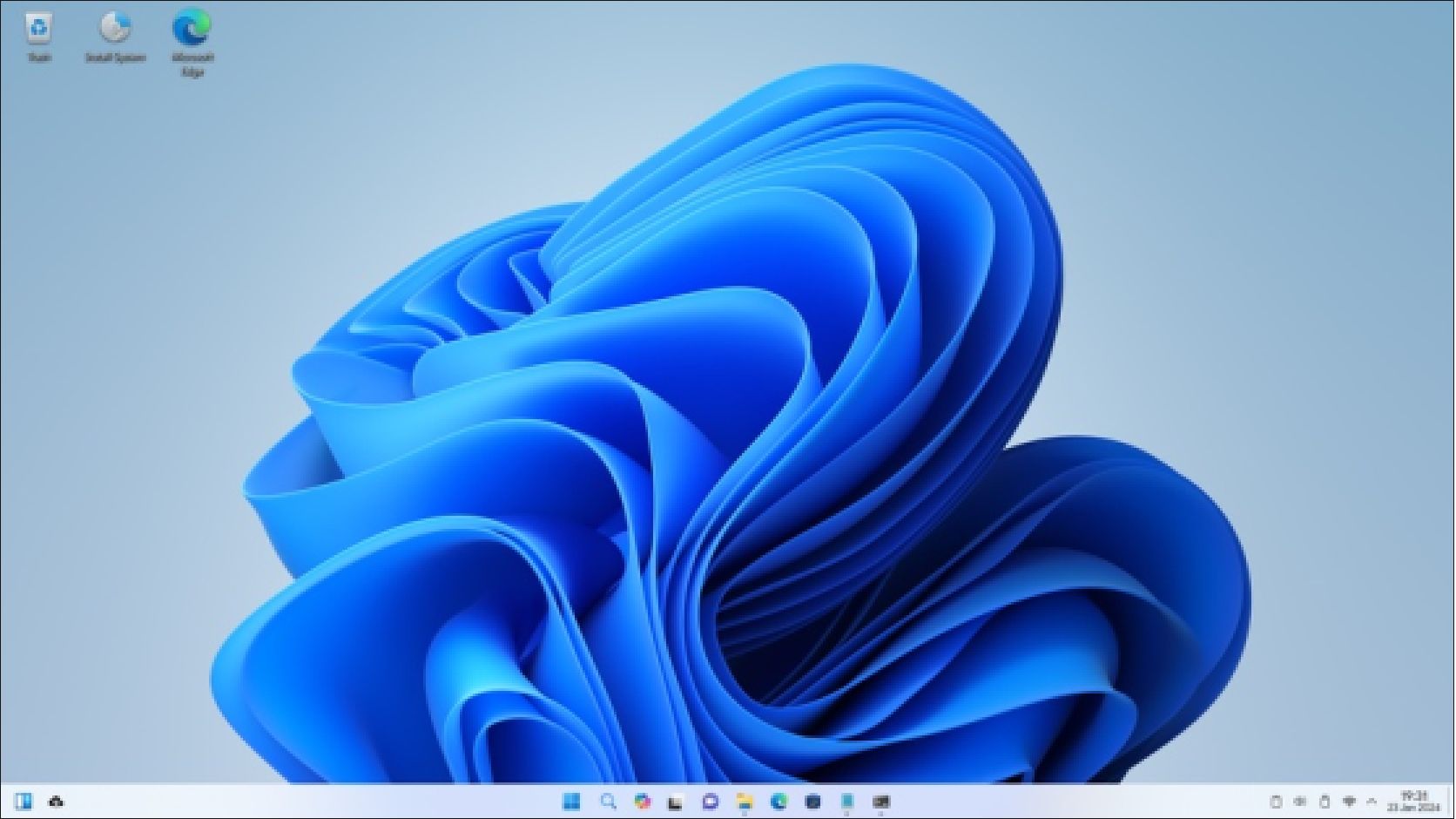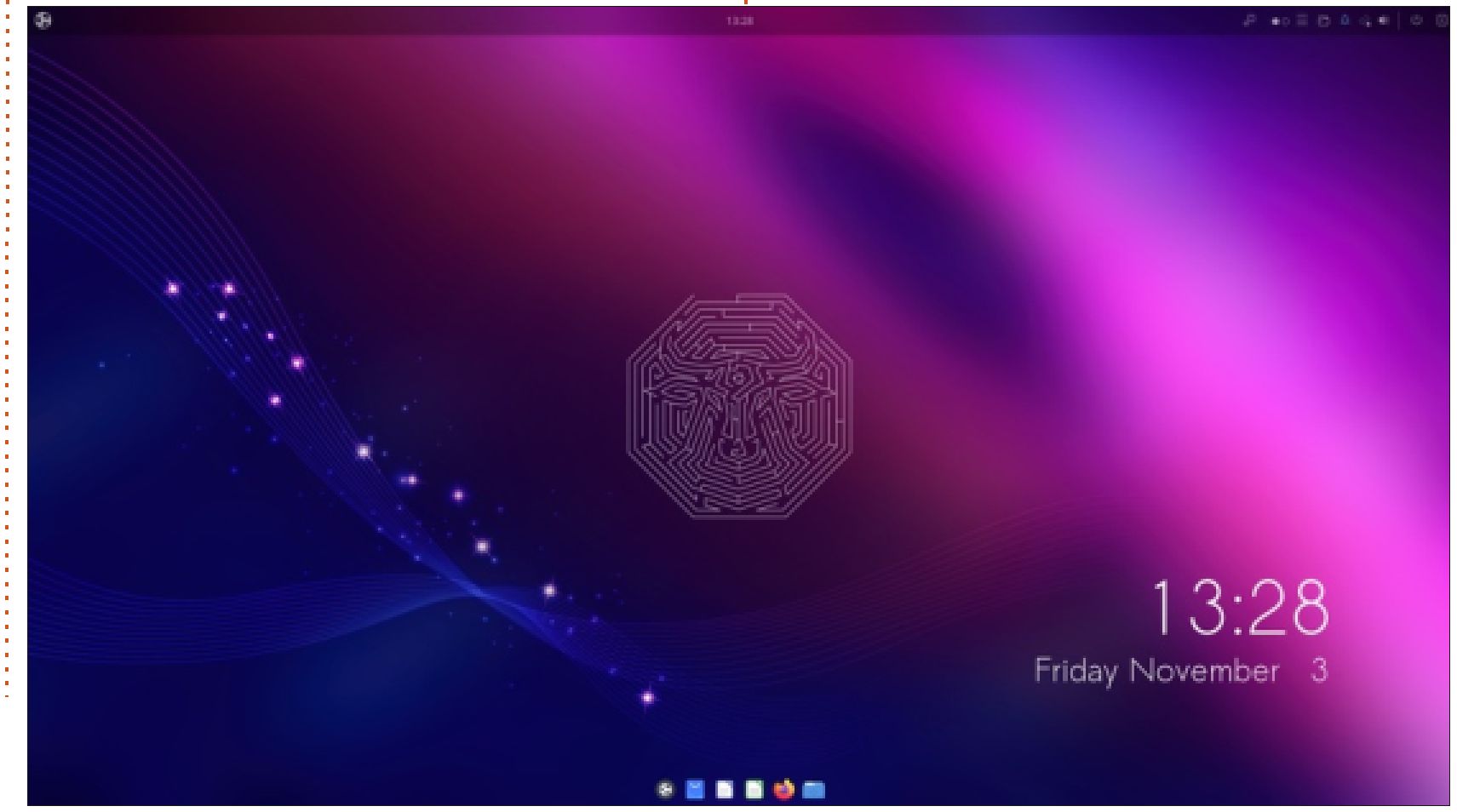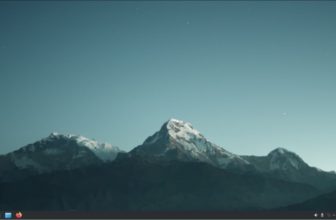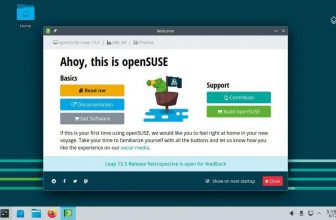Ubuntu Unity 23.04 Review
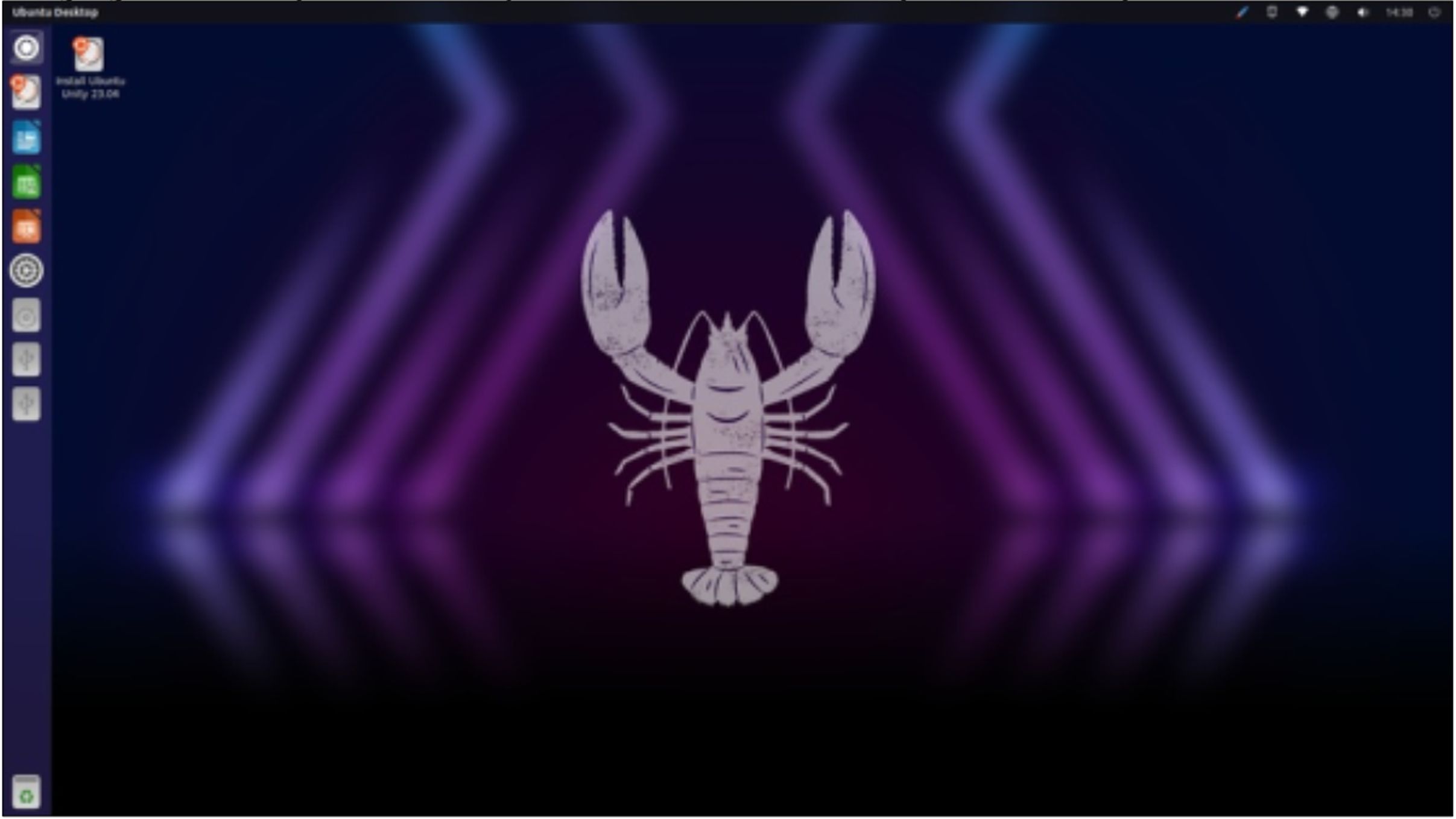
This seventh release of Ubuntu Unity, version 23.04, was released on 20 April 2023. The middle one of three interim releases leading to the next Long Term Support (LTS) release, this is also its second release as an Ubuntu official flavor.
Written by Adam Hunt

In terms of how this development cycle is proceeding, the news is all good. Ubuntu Unity seems to have found its footing and some better stability in its list of default applications.
As an interim release, Ubuntu Unity 23.04 is supported for nine months until January 2024.
Installation
As an official flavor, Ubuntu Unity is now hosted on the Ubuntu servers and that is where I downloaded the ISO file using BitTorrent. Once downloaded, I carried out an SHA256 sum check on it from the command-line, to ensure the file was good.
This ISO proved to be relatively small at 3.3 GB, at least compared to Ubuntu 23.04 at 4.9 GB, and Kubuntu 23.04 at 5.0 GB.
To test Ubuntu Unity 23.04, I dropped the ISO file onto a USB stick equipped with Ventoy 1.0.91 and booted it up from there. Ventoy makes testing Linux distributions a breeze, as it does all the hard work of unpacking the ISO on boot up.
System requirements
Ubuntu Unity does not specify any system requirements, but it is probably safe to assume that it is the same as Ubuntu 23.04, with a minimum of:
- 2 GHz dual-core processor
- 4 GB of RAM
New
This new edition of Ubuntu Unity includes a fresh version of the Unity user interface, 7.7.0, out only on 18 April 2023.
This new version of Unity includes some bug fixes, but it also changes the shape of the “dash” (main menu). Whereas previously it was in a “landscape” layout, now it is “portrait” and opens on the left side of the screen. On the applications menu, this means that you will have to scroll vertically to see the end of the list of applications. While different from the previous Unity dash, I am not convinced it is an improvement. Could the menu not use the whole screen or would it just look too much like the current menu on Ubuntu?
Unity 7.7.0 also introduces a redesigned top panel, with transparency by default and improved adaptation to light themes. It is also a bit thicker than the panels past.
Also new is an indicator notification, running by default, which is supposed to make sure you don’t miss any notifications. In my testing, I found it annoying and obtrusive to have to close each notification individually. With other Ubuntu flavors, the notifications simply pop up and then disappear.
This release has also brought a new widget implementation, called UWidgets, although none were available to try out at release time.
Also new: Ubuntu Unity now has a merchandise shop up and running on HelloTux, so fans can get Ubuntu Unity shirts.
Settings
As in past releases, 23.04 has its settings a bit spread out. The basics are in the usual Settings menu, with some in the “brush” panel icon for quick access. These include a choice of ten accent colors and two window themes, Yaru and the default Yaru-dark. The Unity Tweak Tool has many more options, including the addition of two more window themes, the classic Ambiance and Radiance, 36 icon sets, and seven cursor styles. There are lots of user customization choices here and they do work fine once you locate them.
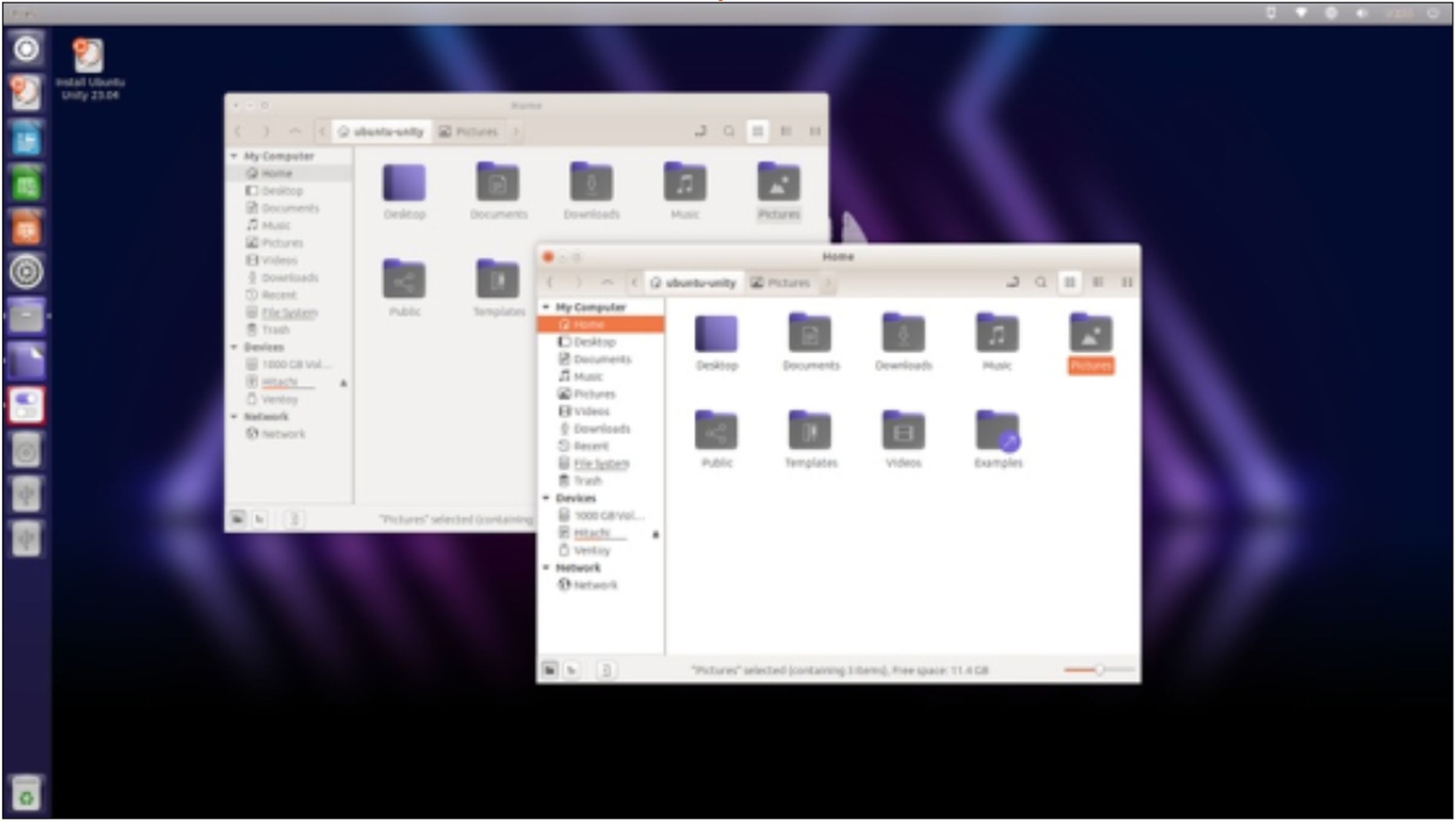
Since the code name for this release is Lunar Lobster, it should not be a surprise that there is a new default wallpaper with a lobster on it. In fact, Ubuntu Unity 23.04 has 17 wallpapers provided, 7 of which have lobsters.
Applications
Some of the applications included with Ubuntu Unity 23.04 are:
- Archive Manager (File Roller) 43.0 File archiver*
- Atril 1.26.0 PDF viewer*
- Cheese 44.0 webcam application CUPS 2.4.2 printing system* Document Scanner (Simple Scan) 44.0 optical scanner
- Firefox 111.0.1 web browser**
- GDebi 0.9.5.7 .deb package installer*
- Gnome Disks 44.0 disk manager
- Gnome Screenshot 41.0 screenshot tool*
- Gnome System Monitor 44.0 system resource monitor
- Gnome Terminal 3.48.0 terminal emulator
- Gparted 1.3.1 partition editor* Image Viewer (Eye of MATE) 1.26.0
- image viewer*
- LibreOffice 7.5.2 office suite
- Nemo 5.6.3 file manager
- Pluma 1.2.6 text editor*
- PulseAudio 16.1 audio controller*
- Remmina 1.4.29 remote desktop client
- Rhythmbox 3.4.6 music player* Shotwell 0.30.18 photo manager Startup Disk Creator 0.3.16 USB ISO writer
- Synaptic 0.91.3 package management system
- Thunderbird 102.10.0 email client
- Transmission 3.00 bittorrent client*
- Unity 7.7.0 interface
- Unity Tweak Tool 0.0.7 settings manager*
- VLC 3.0.18 media player
* indicates the same application version as used in Ubuntu Unity 22.10.
** supplied as a snap, so the version depends on the upstream package manager.
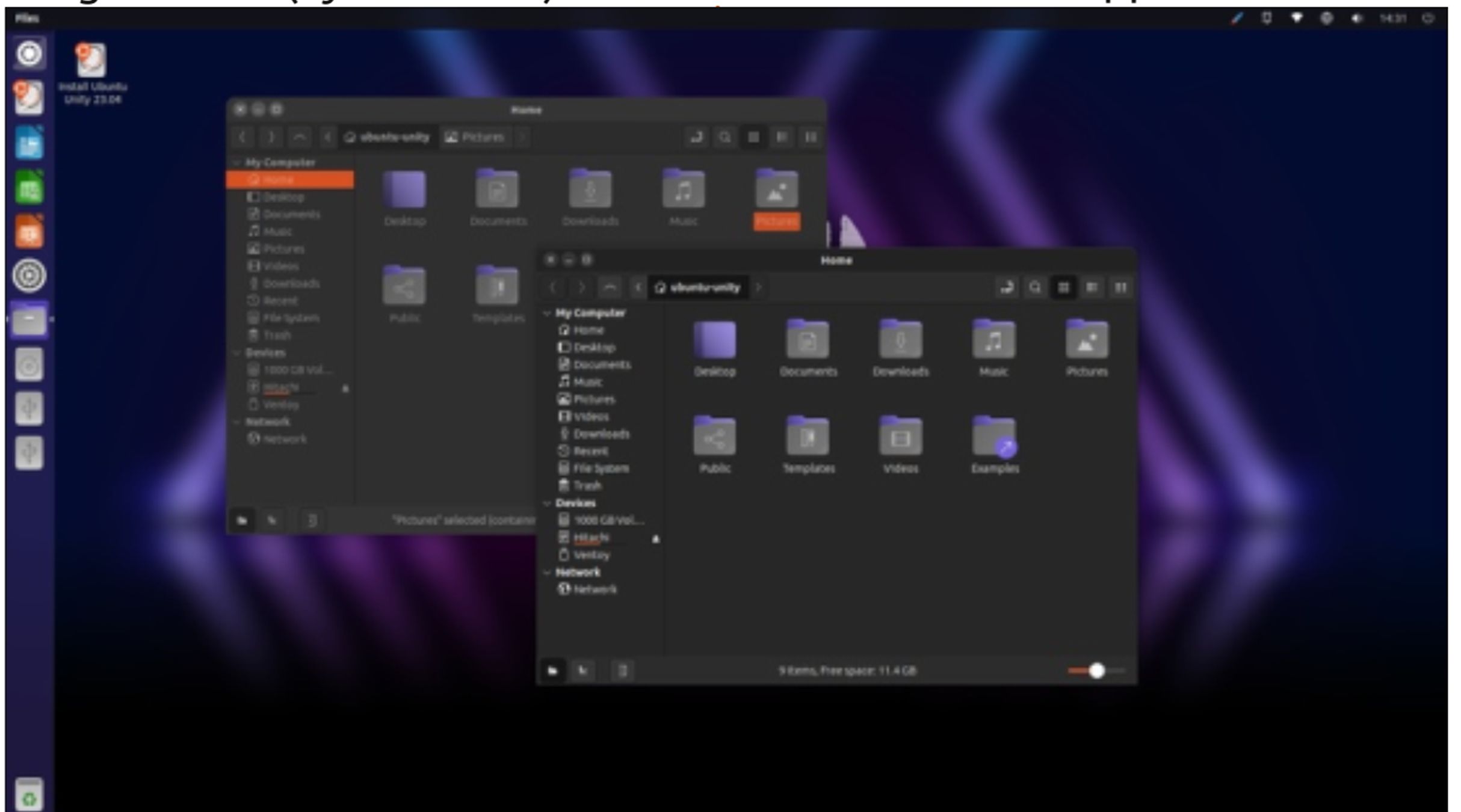
Ubuntu Unity 23.04 is still using PulseAudio as its audio controller and has not switched to PipeWire yet, unlike Ubuntu and Kubuntu.
I am pleased to report that the previous rapid switching of applications, in and out and back in again, seems to have ended, at least in Ubuntu Unity 23.04. Over the past few releases, it had been a bit dizzying, as applications appeared and disappeared, only to reappear again in later releases -and all without explanation in the release announcements. The development team now seems to have decided on a suite of default applications and that is a positive step.
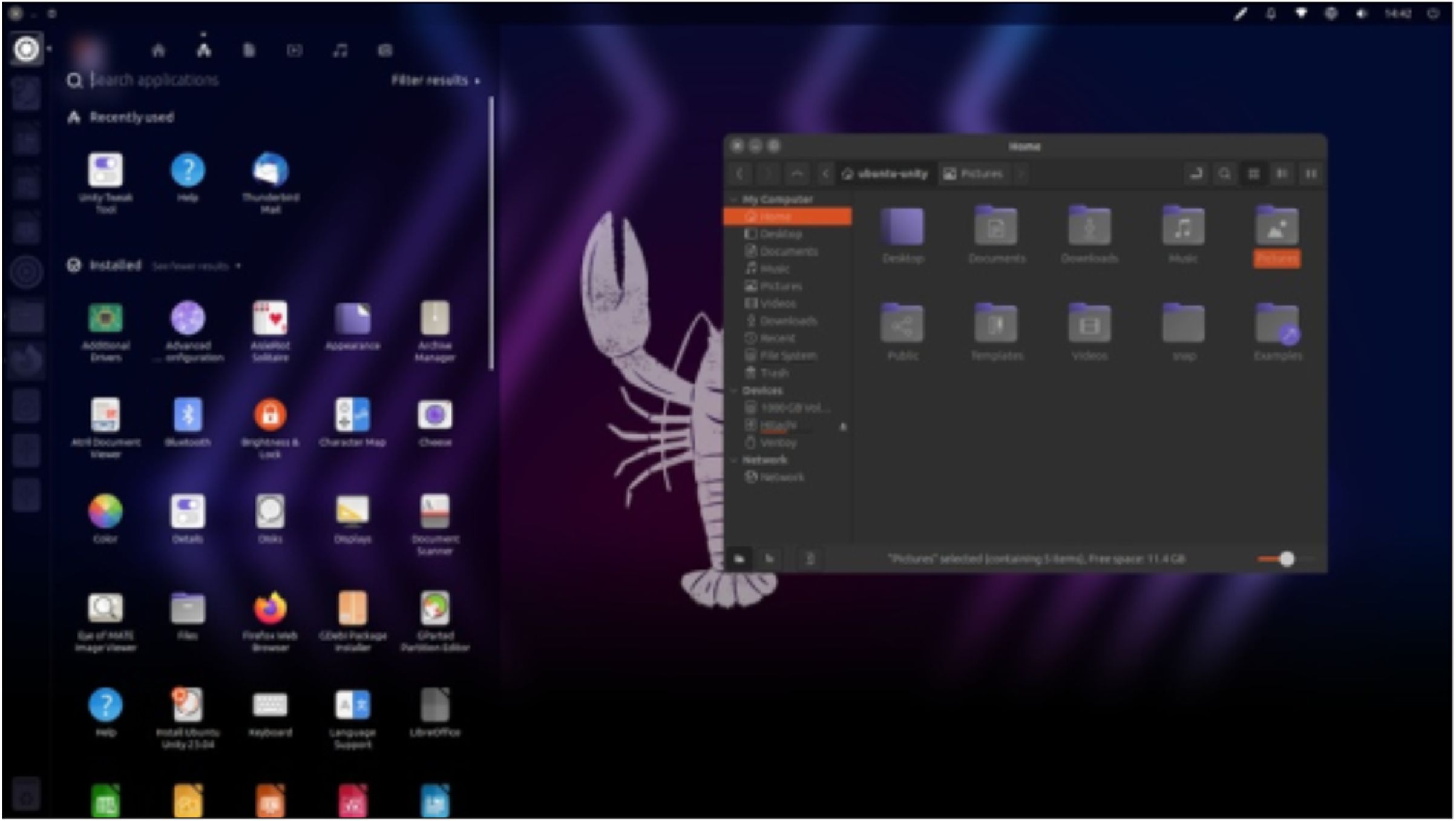
It is not mentioned in the Ubuntu Unity 23.04 release announcement, but the only change to the default application lineup this time is the addition of the Stacer system monitor and optimizer application.
This release continues with Nemo from the Cinnamon desktop environment as its file manager. Nemo works well and has nice controls, but it still lacks bulk file renaming, which really is a needed feature.
LibreOffice 7.5.2 is included, too. Like all of the other Ubuntu flavors, it is missing only the LibreOffice Base database application which is probably the least used LibreOffice component. It can be installed from the Ubuntu repositories if needed.
Conclusions
With its wide variety of user customization, Ubuntu Unity is clearly trying to differentiate itself from mainstream Ubuntu, which is notable for being very limited in this respect. In fact, Ubuntu Unity rivals Kubuntu for its myriad of user setting choices.
With the suite of chosen default applications seemingly now reaching a state of stability, Ubuntu Unity 23.04 sets a good tone for this development cycle. I am interested to see if there are many more changes coming in the next interim release, which will be Ubuntu Unity 23.10, due out on 12 October 2023, and then in the final product for this cycle, Ubuntu Unity 24.04 LTS, due out in April, 2024.
External links
Official website: https://ubuntuunity.org/
Ubuntu Unity HelloTux merchandise shop: https://www.hellotux.com/ubuntu-unity
Adam Hunt started using Ubuntu in 2007 and has used Lubuntu since 2010. He lives in Ottawa, Ontario, Canada, in a house with no Windows.


